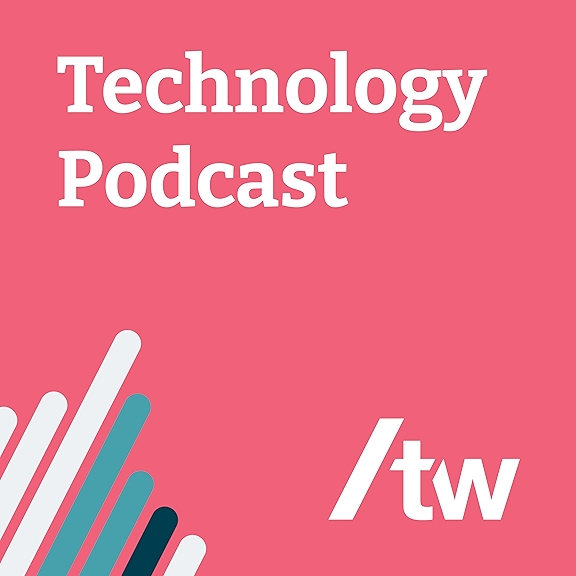
Considering The Ethical Responsibilities Of ML And AI Engineers
Summary
Machine learning and AI applications hold the promise of drastically impacting every aspect of modern life. With that potential for profound change comes a responsibility for the creators of the technology to account for the ramifications of their work. In this episode Nicholas Cifuentes-Goodbody guides us through the minefields of social, technical, and ethical considerations that are necessary to ensure that this next generation of technical and economic systems are equitable and beneficial for the people that they impact.
Announcements
Hello and welcome to the Machine Learning Podcast, the podcast about machine learning and how to bring it from idea to delivery.
Your host is Tobias Macey and today I'm interviewing Nicholas Cifuentes-Goodbody about the different elements of the machine learning workflow where ethics need to be considered
Interview
Introduction
How did you get involved in machine learning?
To start with, who is responsible for addressing the ethical concerns around AI?
What are the different ways that AI can have positive or negative outcomes from an ethical perspective?
What is the role of practitioners/individual contributors in the identification and evaluation of ethical impacts of their work?
What are some utilities that are helpful in identifying and addressing bias in training data?
How can practitioners address challenges of equity and accessibility in the delivery of AI products?
What are some of the options for reducing the energy consumption for training and serving AI?
What are the most interesting, innovative, or unexpected ways that you have seen ML teams incorporate ethics into their work?
What are the most interesting, unexpected, or challenging lessons that you have learned while working on ethical implications of ML?
What are some of the resources that you recommend for people who want to invest in their knowledge and application of ethics in the realm of ML?
Contact Info
WorldQuant University's Applied Data Science Lab (https://www.wqu.edu/)
LinkedIn (https://www.linkedin.com/in/ncgoodbody/)
Parting Question
From your perspective, what is the biggest barrier to adoption of machine learning today?
Closing Announcements
Thank you for listening! Don't forget to check out our other shows. The Data Engineering Podcast (https://www.dataengineeringpodcast.com) covers the latest on modern data management. Podcast.__init__ () covers the Python language, its community, and the innovative ways it is being used.
Visit the site (https://www.themachinelearningpodcast.com) to subscribe to the show, sign up for the mailing list, and read the show notes.
If you've learned something or tried out a project from the show then tell us about it! Email hosts@themachinelearningpodcast.com (mailto:hosts@themachinelearningpodcast.com)) with your story.
To help other people find the show please leave a review on iTunes (https://podcasts.apple.com/us/podcast/the-machine-learning-podcast/id1626358243) and tell your friends and co-workers.
Links
UNESCO Recommendation on the Ethics of Artificial Intelligence (https://unesdoc.unesco.org/ark:/48223/pf0000381137)
European Union AI Act (https://www.europarl.europa.eu/news/en/headlines/society/20230601STO93804/eu-ai-act-first-regulation-on-artificial-intelligence)
How machine learning helps advance access to human rights information (https://www.youtube.com/watch?v=epaowz3pI40)
Disinformation, Team Jorge (https://www.haaretz.com/israel-news/security-aviation/2022-11-16/ty-article-static-ext/the-israelis-destabilizing-democracy-and-disrupting-elections-worldwide/00000186-461e-d80f-abff-6e9e08b10000)
China, AI, and Human Rights (https://fsi-live.s3.us-west-1.amazonaws.com/s3fs-public/snapshot_vi-_countering_the_rise_of_digital_authoritarianism_0.pdf)
How China Is Using A.I. to Profile a Minority (https://www.nytimes.com/2019/04/14/technology/china-surveillance-artificial-intelligence-racial-profiling.html)
Weapons of Math Destruction (https://g.co/kgs/diKJwm)
Fairlearn (https://fairlearn.org/)
AI Fairness 360 (https://aif360.res.ibm.com/)
Allen Institute for AI NYT (https://www.nytimes.com/2023/10/19/technology/allen-institute-open-source-ai.html)
Allen Institute for AI (https://allenai.org/)
Transformers (https://huggingface.co/docs/transformers/index)
AI4ALL (https://ai-4-all.org/)
WorldQuant University (https://wqu.edu/)
How to Make Generative AI Greener (https://hbr.org/2023/07/how-to-make-generative-ai-greener)
Machine Learning Emissions Calculator (https://mlco2.github.io/impact/#compute)
Practicing Trustworthy Machine Learning (https://learning.oreilly.com/library/view/practicing-trustworthy-machine/9781098120269/)
Energy and Policy Considerations for Deep Learning (https://arxiv.org/abs/1906.02243)
Natural Language Processing (https://en.wikipedia.org/wiki/Natural_language_processing)
Trolley Problem (https://en.wikipedia.org/wiki/Trolley_problem)
Protected Classes (https://en.wikipedia.org/wiki/Protected_group)
fairlearn (https://fairlearn.org/) (scikit-learn)
BERT Model (https://en.wikipedia.org/wiki/BERT_(language_model))
The intro and outro music is from Hitman's Lovesong feat. Paola Graziano (https://freemusicarchive.org/music/The_Freak_Fandango_Orchestra/Tales_Of_A_Dead_Fish/Hitmans_Lovesong/) by The Freak Fandango Orchestra (http://freemusicarchive.org/music/The_Freak_Fandango_Orchestra/)/CC BY-SA 3.0 (https://creativecommons.org/licenses/by-sa/3.0/)




















